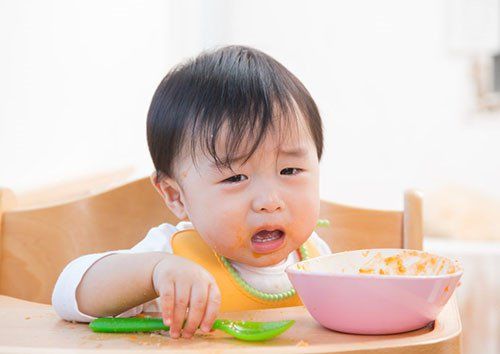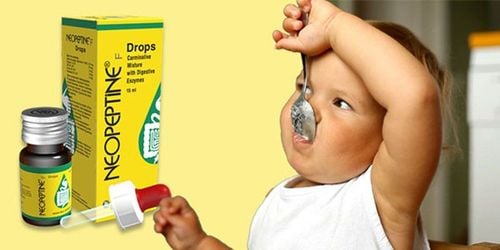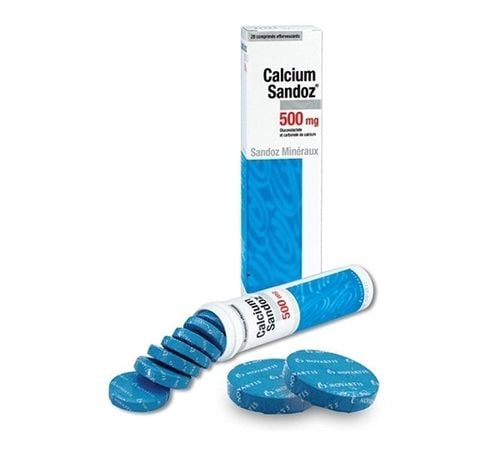This is an automatically translated article.
The digestive system of infants and young children is not yet fully developed, so it is easily affected. Poor digestion in children can affect the child's development as well as comorbidities. This article will provide more information on the causes of poor digestion in children and some remedies.
1. The reason why children have poor digestion
Poor digestion or poor absorption of nutrients. To put it simply, poor digestion is a condition in which food from the outside is brought into the body with all the necessary nutrients, but the child cannot absorb it, leading to nutritional deficiencies, health and wellness. Health decline, easy to get sick...
The process of digesting food takes place in a certain sequence. Food after being loaded into the body will produce nutrients. Nutrients, after being produced, continue to be absorbed by the small intestine and then transported to the blood, organs and tissues to help the body grow and maintain strength.
Most nutrients from food when supplied to the body are easily absorbed through mechanical activities such as: biting, chewing, crushing, kneading ... and chemical transformation activities. such as: Enzyme hydrolysis in the stomach, pancreas, secretion of bile to the small intestine... Although the process of digesting food is very well established and tight, some nutrients may still appear. difficult to absorb nutrients such as: Protein, lipid...
Children with poor digestion is not a rare condition but also appears quite common. The causes of poor digestion in children can be traced back to:
The time to give complementary foods is not reasonable: Eating too early makes the child's digestive system vulnerable, causing poor health. digestion or digestive disorders. The reason is because children at this stage have not fully developed digestive system, absorbing nutrients from food can make the child's digestive system work too hard and cause damage. Children eat unhygienic: The process of functioning of organs, cells, tissues ... in children's bodies is not completely at full capacity like adults. Therefore, the ability to absorb and digest food is also different from that of adults. The frequent use of unhygienic foods by children can make the digestive system weak. Signs such as abdominal pain, diarrhea, intestinal infections ... all make the child's digestive system worse and the ability to digest food into nutrients for the body is inhibited.

Hệ tiêu hóa yếu khiến trẻ gặp tình trạng tiêu chảy do ăn uống không hợp vệ sinh
Complications of the treatment of diseases related to the digestive system: The use of some drugs to treat the disease may affect the digestive system or the intestinal microflora of the child. Especially diseases that are directly related to the digestive system. Improper eating habits make the digestive system weak: Children often skip meals or eat more than normal needs negatively affect the digestive system. All of the above cases cause damage to the digestive system, which leads to inflammation, reduced performance and affects the absorption of nutrients into the body. Using antibiotics will kill harmful bacteria and harmful viruses, however, this also means killing beneficial intestinal bacteria in the child's body. When there is an imbalance of microorganisms in the intestine, it will cause digestive disorders, poor absorption of nutrients.
2. Is poor digestion dangerous to children? Recognizing signs
Poor digestion, although it affects the absorption of nutrients in children, however, if this problem is timely intervened, it will not cause serious danger. In many cases, poor digestion in a child can be a sign that the child is suffering from another medical condition.
Digestive problems in children are quite common nowadays. When the body is not provided with enough nutrients, it makes health weak, thin body, lack of vitality, poor resistance ... and children are more susceptible to diseases.
Signs of poor digestion in children:
Children defecate with loose, watery stools, sometimes with undigested food particles - raw stools, with a fishy smell. When parents observe the toilet after the child defecates, there is a floating scum on the surface of the water because the fat is not absorbed in the stool. Children are anorexic, slow to grow or malnourished, and underdeveloped in height. Children also have signs such as abdominal pain, bloating, gas or bloating. Children have no appetite and their appetite also decreases, so they will eat a lot less than usual. Because children eat less, children may suffer from some diseases due to micronutrient deficiency such as: Pale mucous membranes due to iron deficiency anemia, body numbness due to vitamin B1 deficiency, muscle pain and cramps due to calcium deficiency...

Trẻ em tiêu hóa kém có thể xuất hiện tình trạng biếng ăn
3. Methods to improve children's digestive system
During normal development, children may still experience malabsorption for about 1 to 2 days due to: Teething fever or bacterial infections, respiratory infections, side effects of vaccines. ..
If the child has symptoms of poor digestion not due to the above reasons, parents need to take the child to a doctor for timely and appropriate diagnosis and treatment. In addition, parents can apply one of the following contents to prevent and adjust malabsorption in children:
Appropriate diet: Parents need to prepare hygienic and suitable food. Suitable for children's ages and tastes to stimulate the child's taste buds. Only give children enough food and do not force them to eat too much because this will make them afraid and lazy to eat. The nutritional composition of the child's diet needs to ensure enough 4 groups of nutrients along with the necessary vitamins and minerals. Parents should also give children about 5 meals a day with 3 main meals and 2 snacks. After each course of antibiotic treatment for children, in addition to digestive enzymes prescribed by doctors, parents can give children more yogurt to help supplement beneficial bacteria for the digestive tract. In addition, parents can also add soluble fiber to help stimulate the growth of beneficial bacteria in the intestinal system. Parents remember to deworm children over 2 years old periodically to clean the digestive system. Children should be encouraged by their parents to be active. When children move, it will increase the contraction of the intestines, help to eat more delicious and the process of digesting food also increases, thereby fully absorbing the necessary nutrients. In short, poor digestion in children is quite common. In this case, parents need to pay attention to the proper nutrition for their children. The full addition of 4 important groups of substances will help improve the digestive system, so that the child can develop to the maximum physically and mentally. In case the child has poor digestion due to a medical condition and the daily diet cannot provide enough vitamins and necessary nutrients, parents can give the child additional oral supplements as prescribed by the doctor. to keep the digestive system healthy.













